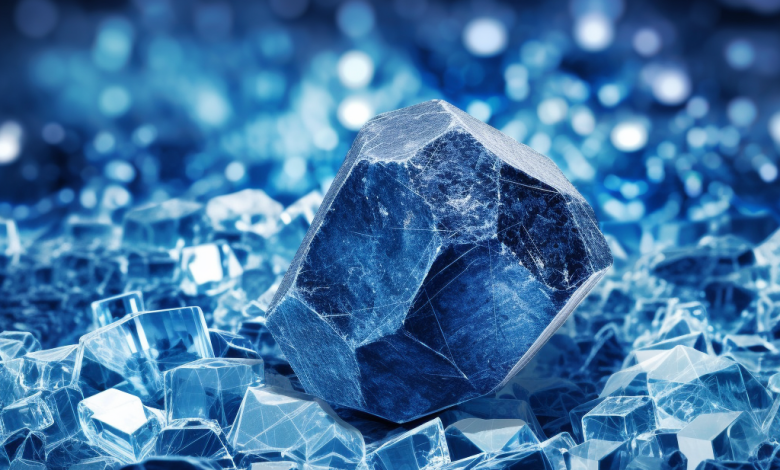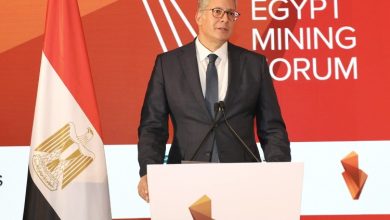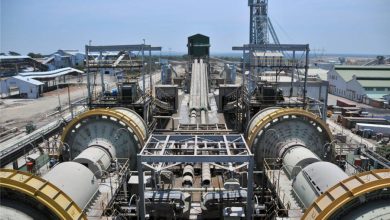
- Blockchain technology holds significant promise in revolutionizing the mineral supply chain by enhancing transparency, traceability, and accountability. Through immutable record-keeping, smart contracts, and collaborative platforms, blockchain enables responsible sourcing practices and builds consumer trust. While challenges persist, the continued development and adoption of blockchain solutions will pave the way for a more ethical and sustainable mineral supply chain in the future.
The mineral supply chain plays a vital role in various industries, including electronics, automotive, and jewelry. However, concerns regarding unethical practices, such as human rights abuses and environmental damage, have plagued the industry for years. In recent times, blockchain technology has emerged as a potential solution to address these challenges by enhancing transparency and traceability throughout the mineral supply chain. This investigative article delves into the rise of blockchain technology and its impact on the mineral supply chain, highlighting how it enables greater accountability and responsible sourcing.
Understanding the Mineral Supply Chain
Before exploring the role of blockchain, it is essential to understand the complexities of the mineral supply chain. The process begins with extraction, where minerals are sourced from mines globally. These raw materials then undergo processing and refining before being transformed into various products. Finally, the products reach consumers through distribution channels.
Challenges in the Mineral Supply Chain
The mineral supply chain faces several challenges, including:
- Lack of Transparency: Due to the complexity and global nature of the supply chain, it is challenging to track minerals’ origins accurately. This opacity makes it difficult to identify potential human rights violations, such as child labor and unsafe working conditions, and environmental impacts like deforestation and water pollution.
- Counterfeit Products: The lack of transparency also contributes to the proliferation of counterfeit products within the mineral supply chain. Counterfeiting not only leads to economic losses but can also fund illegal activities and perpetuate human rights abuses.
- Verification and Certification: Authenticating the origin and ethical sourcing of minerals is a significant concern. Verification and certification processes often rely on paper-based documentation, which can be forged or manipulated.
The Role of Blockchain Technology
Blockchain technology, most commonly associated with cryptocurrencies like Bitcoin, offers a decentralized and immutable ledger system that records and verifies transactions. When applied to the mineral supply chain, blockchain enables transparency, traceability, and accountability. Here’s how:
- Immutable Record-Keeping: Blockchain creates a tamper-proof and transparent record of every transaction and movement within the supply chain. Each transaction is recorded in a block, and once added to the chain, it cannot be altered retroactively. This feature ensures that information about mineral origin and movements remains transparent and trustworthy.
- Smart Contracts and Automation: Smart contracts, self-executing agreements built on blockchain, can automate compliance and verification processes. For instance, when minerals are extracted from a mine, smart contracts can trigger a series of predefined actions, such as verifying certifications, conducting audits, and ensuring compliance with ethical standards.
- Enhanced Traceability: With blockchain, each mineral batch or product can be assigned a unique digital identifier or “digital twin.” This identifier contains relevant information about the mineral’s origin, processing, certifications, and other supply chain data. By scanning this identifier, stakeholders, including consumers, can trace a mineral’s journey and ensure ethical sourcing.
- Consensus and Collaboration: Blockchain’s decentralized nature allows multiple stakeholders, including miners, manufacturers, distributors, and consumers, to participate in the network. This collaboration enables consensus-based decision-making, reduces information asymmetry, and fosters trust among participants.
Use Cases and Initiatives
Several initiatives have emerged to leverage blockchain in the mineral supply chain:
- Responsible Minerals Initiative (RMI): RMI, a coalition of leading companies and organizations, aims to enhance mineral supply chain transparency and due diligence. They utilize blockchain technology to create immutable records of minerals’ origin, facilitating responsible sourcing practices.
- Everledger: Everledger utilizes blockchain to track and verify the origin of diamonds, ensuring they are conflict-free and ethically sourced. This initiative has successfully demonstrated the potential of blockchain in enhancing transparency within the gemstone industry.
- IBM Blockchain Platform: IBM has developed a blockchain platform that allows participants in the mineral supply chain to track and authenticate the origin of minerals. The platform utilizes smart contracts to automate compliance and verification processes, ensuring responsible sourcing practices.
- Minespider: Minespider is a blockchain-based solution that focuses on transparency and traceability in mineral supply chains. It enables the creation of digital certificates for minerals, recording information such as origin, certifications, and chain of custody. This information can be accessed by all stakeholders, promoting transparency and ethical sourcing.
- Blockchain-Based Certification Systems: Various certification organizations are exploring the use of blockchain technology to improve the credibility and transparency of their certification processes. By recording certifications and audit results on a blockchain, stakeholders can easily verify the authenticity of responsible sourcing claims.
Benefits and Future Outlook
The integration of blockchain technology into the mineral supply chain offers several benefits:
- Enhanced Transparency: Blockchain ensures that information about mineral origin, processing, and certifications is readily accessible and transparent to all stakeholders. This transparency reduces the risk of unethical practices and enables consumers to make informed purchasing decisions.
- Improved Accountability: By recording every transaction and movement on a blockchain, accountability can be established throughout the supply chain. This encourages responsible behavior and discourages fraudulent activities.
- Ethical Sourcing Verification: Blockchain technology provides a reliable and tamper-proof mechanism for verifying the ethical sourcing of minerals. This verification is crucial for industries that rely on responsible sourcing, such as electronics and jewelry.
- Consumer Trust: With blockchain-enabled traceability, consumers can have confidence in the products they purchase, knowing that they are sourced ethically and sustainably. This trust can positively impact brand reputation and consumer loyalty.
Looking ahead, the adoption of blockchain technology in the mineral supply chain is expected to continue growing. As more companies and organizations recognize the importance of responsible sourcing, blockchain can serve as a powerful tool to drive transparency, traceability, and accountability. Furthermore, advancements in Internet of Things (IoT) devices and sensor technology can complement blockchain solutions by providing real-time data on mining and processing activities.
However, challenges remain, including the need for standardization, interoperability among different blockchain platforms, and scalability to accommodate the vast volume of transactions within the mineral supply chain. Overcoming these challenges will require collaboration among stakeholders, industry-wide initiatives, and regulatory support.
.




